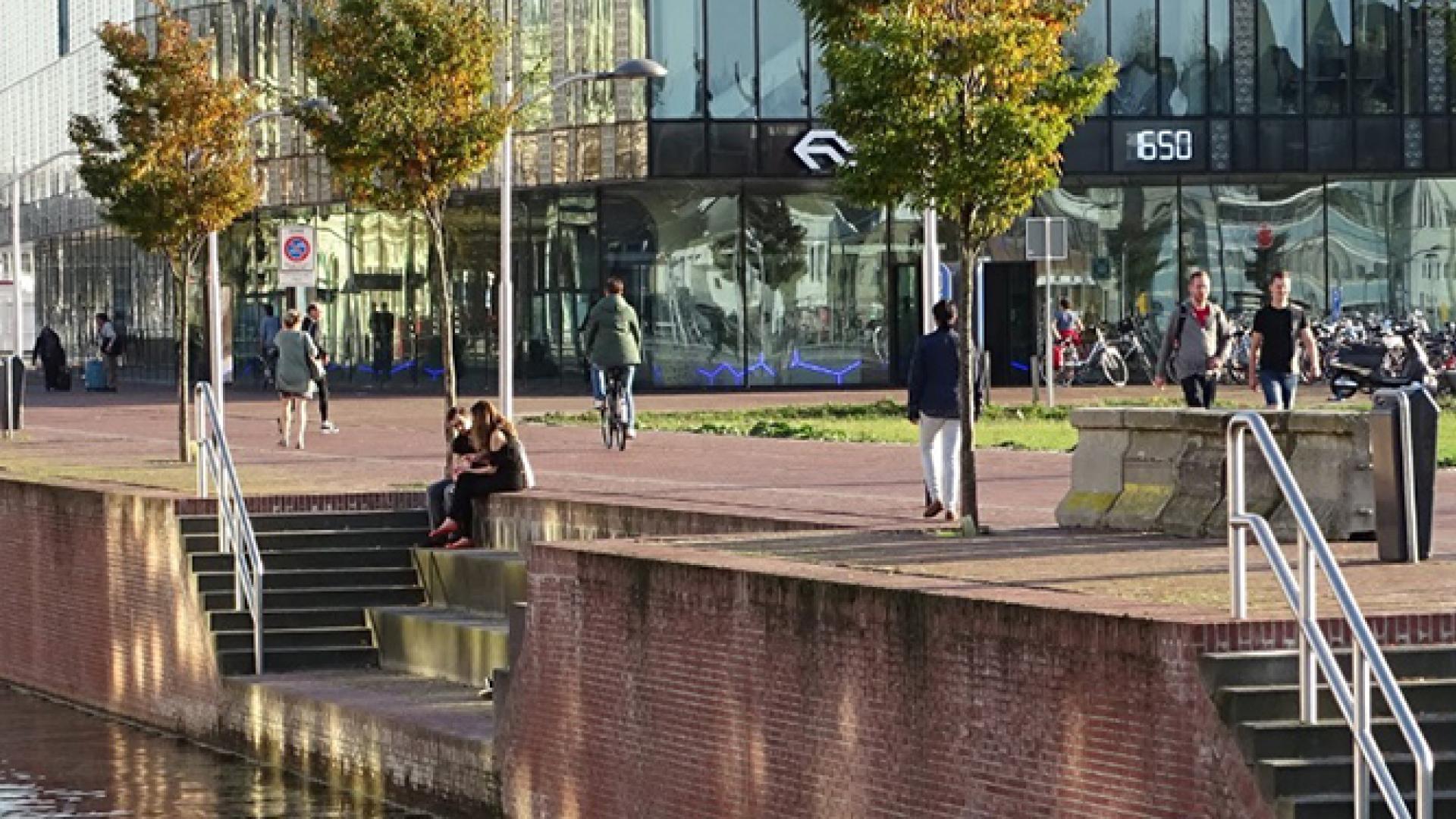Daarnaast wil GroenLinks het aantrekkelijk maken om te kiezen voor het openbaar vervoer. De komst van vier treinsporen versterkt de bereikbaarheid van Delft. Daar waar openbaar vervoer onrendabel, maar cruciaal is, heeft GroenLinks extra geld over voor slimme oplossingen. Bijvoorbeeld vervoer op bestelling. Bussen moeten zo veel mogelijk over snelle routes rijden. Mensen die moeilijk naar een halte kunnen komen, worden thuis opgehaald.
Ten slotte wil GroenLinks autodelen actief stimuleren met campagnes en door het beschikbaar stellen van autodeelplaatsen. We willen experimenteren met de bouw van autoloze woningen: woningen zonder eigen parkeerplek, waarvan de eigenaren ook geen recht hebben op een parkeervergunning, maar wel op een deelauto. En als er voldoende draagvlak is onder de bewoners van een straat, dan mogen mensen hun straat in de zomermaanden inrichten als leefstraat, zonder auto’s.
Priority for cyclists and pedestrians
GroenLinks Delft wants to prioritise cyclists and pedestrians: more and safer walkways and bike paths and sufficient parking space for bicycles. We want Delft to become the biking capital of the Netherlands. This requires investments in bicycle paths, overpasses and tunnels. Delft can already be reached easily by car. This is why GroenLinks wants to reduce car traffic in the city centre and remodel car parks into parking spaces for bicycles. One less parked car creates space for 12 bikes!
In addition, GroenLinks wants to improve the attractiveness of public transport options. The arrival of four train tracks increases Delft’s accessibility. Where public transport is uneconomical, but crucial to the area, GroenLinks wants to provide additional funds for smart solutions, such as transport on demand. Busses should use fast routes as much as possible. People with mobility issues must have access to door to door transport.
Finally, GroenLinks wants to actively promote car sharing initiatives with campaigns and by creating designated car sharing spaces. We want to experiment with building carless homes. These are homes without a private parking space, whose owners are entitled to access to shared vehicles instead of a parking permit. During the summer months neighbours may choose to turn their street into a car free residential area, provided there is consensus among residents.
